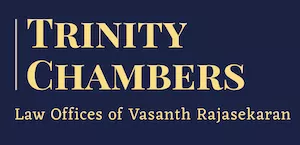- within Litigation and Mediation & Arbitration topic(s)
- in India
- with readers working within the Law Firm industries
- within Real Estate and Construction, Government, Public Sector and Insolvency/Bankruptcy/Re-Structuring topic(s)
- with Finance and Tax Executives
Introduction
When it comes to arbitral awards against government departments or public authorities, the question is often not 'if' but 'when' the period begins for challenging the award. Is handing over the award to any officer within the department enough, or should it be given to any specific officer who is aware of the arbitration proceedings?
The Hon'ble Supreme Court in Motilal Agarwala vs. State of West Bengal & Anr.1 has held that service of an arbitral award on a government official who is not connected with or aware of the arbitration proceedings does not constitute a valid service. This implies that the limitation period for filing a challenge under Section 34 of the Arbitration and Conciliation Act, 1996 ("the Act") will not commence in such circumstances.
The Indian Legal Position on Effective Service to Government Undertakings and Departments
The Supreme Court in Union of India vs. Tecco Trichy Engineers & Contractors2 had ascertained the meaning of "delivery" of an arbitral award under Section 31(5) of the Act and its connection with the limitation period under Section 34(3) of the Act. The Apex Court had emphasised that the award must be delivered to the person who is directly connected with the arbitral proceedings and competent to take decisions about it. Service of the award on a high-ranking officer like the General Manager, who otherwise has no involvement in the arbitration process, would not trigger the limitation under Section 34(3) of the Act.
The Supreme Court in Tecco Trichy Engineers (supra) had observed that in large organisations like the Railways, the senior managerial personnel often head the division but are not directly involved in the day-to-day arbitration matters. It was observed that "party" as referred to in Section 2(h) read with Section 34(3) of the Act has to be construed to be a person directly connected with and involved in the proceedings and who is in control of the proceedings before the arbitrator. Therefore, service of the arbitral award on the General Manager by way of receipt in his inwards office cannot be taken to be sufficient notice so as to constitute the starting point of limitation.
In this context, the Apex Court had noted that the delivery of the award is not just a formality, but a significant step because it activates limitation periods for applications under Sections 33 and 34 of the Act. Turning to the facts in Tecco Trichy Engineers (supra), since the Chief Engineer signed the contract, represented the Union of India, and was directly involved in the arbitration, the Apex Court held that limitation would begin from the date the Chief Engineer received the award, not when the General Manager's office received it. Therefore, in the context of government departments, the award must be delivered to the officer having knowledge and control of the proceedings.
Recently, a similar issue was being dealt with in Motilal Agarwala (supra). The issue before the Apex Court was whether receipt of a signed copy of the arbitral award to an authorised representative of the State amounts to valid delivery under Section 31(5) of the Act. In this case, the delivery was made on the Assistant Engineer. The Apex Court held that such delivery was not valid since the representative was neither a "party" to the arbitration agreement nor competent to decide whether the award should be challenged. It was noted that under Section 34(3) of the Act, limitation runs from the date when the "party" receives the award. "Party" means a party to the arbitration agreement as per Section 2(1)(h) of the Act. The Supreme Court placed reliance on Benarsi Krishna Committee v. Karmyogi Shelters Pvt. Ltd.3 to hold that "party" under Section 2(1)(h) of the Act does not include agents or advocates.
On facts, though the authorised representative collected a signed copy, he was not the competent authority to take a decision on challenging the award. The proper recipients would have been the Secretary of the Department or the Executive Engineer concerned. The Supreme Court held that delivery to an Assistant Engineer who was present at the meeting was not a valid service since he was not a "party to the arbitration" nor in a decision-making role. Limitation, therefore, did not commence from that date. The Supreme Court relied on the dictum in Tecco Trichy (supra) to reiterate that service of the award must be made on the departmental authority actually connected with the arbitration, not to a subordinate officer who does not hold decision-making authority.
The Supreme Court, in its judgments in Tecco Trichy (supra) and Motilal Agarwala (supra), has ascertained that delivery of an arbitral award under Section 31(5) of the Act would be effective only when it reaches the competent departmental officer who is directly involved in the arbitration and empowered to act on it. Delivery to a general head, agent, advocate, or subordinate officer not in decision-making capacity would not trigger the limitation under Section 34(3).
Way Forward and Suggestions
To prevent disputes regarding the validity of service of arbitral awards, interested parties can exercise appropriate diligence and adopt various measures to ensure a valid delivery of the award.
For instance, at the threshold stage itself, the arbitral tribunal may, in its first procedural order as a part of the procedural directions governing the entire arbitration, direct the parties to provide, in writing, the name, designation, official e-mail IDs, and postal address of the officer concerned with the arbitration. The arbitrator may also direct that a copy of the award be issued to the stakeholders to ensure completion of service. Service may be done on an officer who is directly involved in the arbitration and authorised to act on it (e.g., Executive Engineer, Chief Engineer, or Secretary of the Department).
Alternatively, the parties interested in the proceedings may request the arbitral tribunal to despatch the copy of the award either to the person who signed the vakalatnama/ letter of authority to represent the government body in the arbitration proceedings and/ or to the personnel who deposed as a witness on behalf of the said government entity or to the person who has authorised the person to sign the vakalatnama.
Footnotes
1. Motilal Agarwala v. State of W.B., 2025 SCC OnLine SC 1876.
2. Union of India v. Tecco Trichy Engineers & Contractors, (2005) 4 SCC 239.
3. Benarsi Krishna Committee v. Karmyogi Shelters Pvt. Ltd. (2012) 9 SCC 496.
The content of this article is intended to provide a general guide to the subject matter. Specialist advice should be sought about your specific circumstances.




